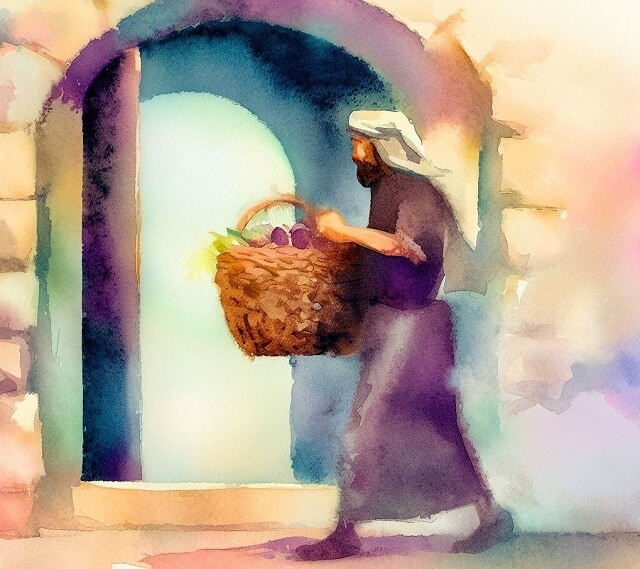
Twice every seven years, the Jewish farmer declares that he has correctly tithed his crops:
“I have removed all the sacred portions [tithes] from my house. ... I have not violated Your commandments and I have forgotten nothing.” (Deut. 26:13)
What was it that the farmer did not forget to do as he distributed his tithes?
The Sages explained, “I did not forget to bless You and mention Your name over it” (Ma’aser Sheini 5:11). The farmer took care to recite a brachah before tithing. He expressed his gratitude for the opportunity to share his produce with the kohanim and Levites, who represent the nation in the Temple, as well as with the less fortunate — the strangers, orphans, and widows.
What constitutes a blessing?
The rabbis of the Talmud instituted an intricate framework of blessings, to be recited in a wide variety of situations in life. These include: partaking of a fruit, smelling a spice, witnessing a rainbow, performing a mitzvah, and more. What is the purpose of all of these blessings?
The Talmud (Berachot 40b) records a disagreement that sheds light on the inner meaning of blessings. The Talmudic scholar Abba Arikha, commonly known as ‘Rav,’ stated that a brachah must contain God’s name; otherwise, it is not deemed a valid brachah.
Rabbi Yochanan, however, disagreed with Rav. Not only must we mention God’s name, we must also mention His malchut, His kingship. We must acknowledge God as Ruler of the universe. A blessing that fails to include both God’s name and sovereignty, Rabbi Yochanan argued, does not constitute a blessing.
Why mention Malchut?
Maimonides explained that blessings instill within us the recognition of eternal truths, “so that we will remember the Creator at all times” (Laws of Blessings, 1:3-4).
By mentioning God’s name in the brachah, we acknowledge the ultimate truth of God’s existence. Rav believed that this is the true function of blessings, and consequently, it will influence our actions. Once we recognize God as the Creator and Source for this fruit, fragrance, or mitzvah, we will seek to conduct ourselves in a manner that is good and proper in God’s eyes.
Rabbi Yochanan, on the other hand, feared a scenario in which someone acknowledges God’s name but fails to act upon that knowledge. He therefore stipulated that all blessings must include the phrase “Ruler of the universe.” By recognizing God’s malchut and Divine rule in the world, we affirm that our actions should be moral and upright, or suffer the consequences. One whose actions are corrupt is subject to the justice meted out by the authority of the King.
In general, this dispute may may be framed around the following question: is abstract intellectual understanding sufficient to guide individuals to true ethical living? Or is it necessary to have specific recognition directly related to moral behavior — acknowledgment of God’s sovereignty in the world?
Who was right?
The Mishnah about the farmer who recited the brachah before tithing appears to support Rav’s opinion. This source only mentions the need to mention God’s name, and not the requirement to mention His rule over the universe.
Yet, we may make a distinction between different types of blessings. With regard to blessings recited before performing a mitzvah, such as tithing, perhaps it is not necessary to mention God’s malchut, since the very performance of the mitzvah indicates that we recognize the significance of our actions and the importance of acting in accordance to God’s will. However, blessings recited for enjoyment, before eating or smelling a fragrance, should require both God’s name and His trait of malchut.
In fact, the Halachah was decided that all types of blessings require that we mention God as Ruler of the universe — like the opinion of Rabbi Yochanan (Shulchan Aruch OH 214:1).
(Adapted from Ein Eyah vol. II, pp. 184-5)





